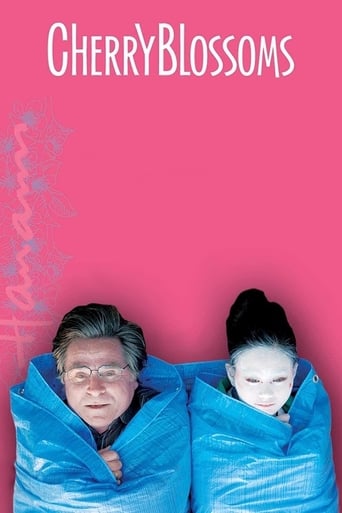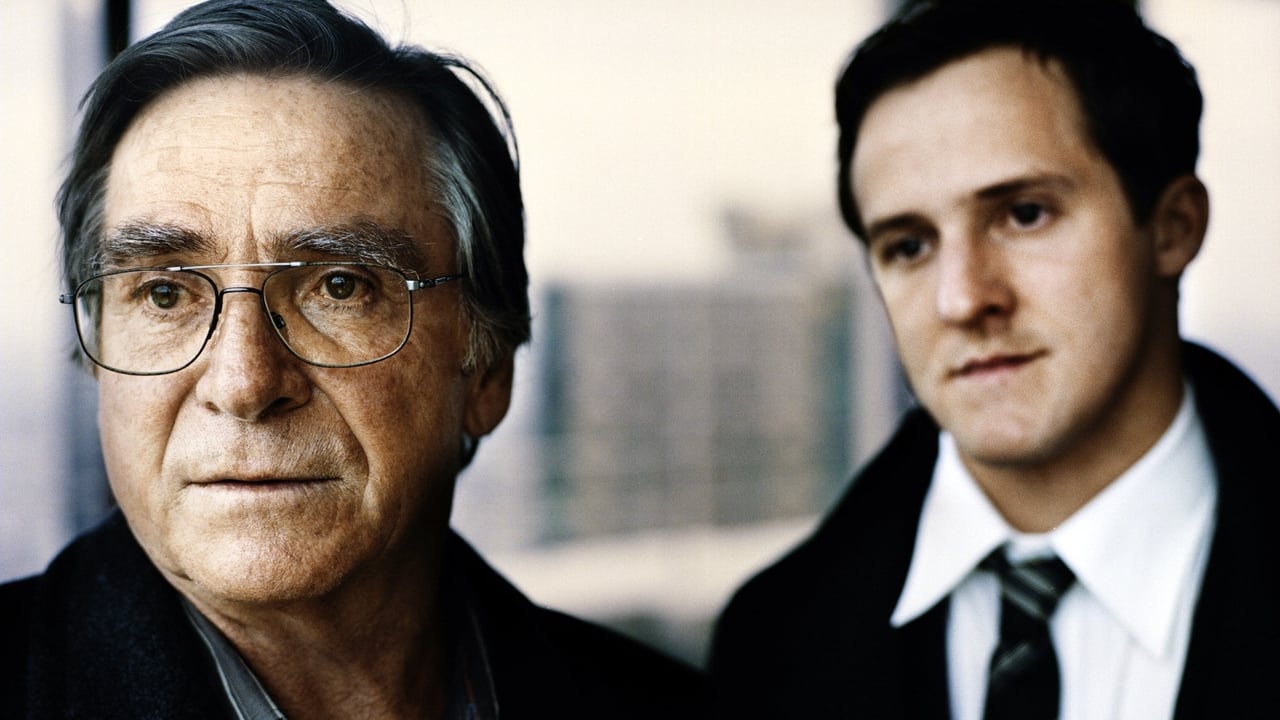Andres-Camara
After seeing it you feel that you have already seen it many times and soon you will have forgotten.Spoiler: I never understood why good cinema has to be slow. I do not know why to make a good movie you have to make it slow. This is a good movie or rather, it is a good script, which for my taste is poorly performed. I understand cinema as the sum of a few facets and in this case, the only one I like is the script. If we go to the other facets, apart from the direction of actors, none is good. A fundamental part of a good movie is to make it enjoyable, here fails, the photo, needless to say. Lately it is fashionable to put all the light through the windows and not see the outside, where I have to tell a story with the photo. If we see the makeup and hairdressing as normal, which is not bad, at least not bad. But I think that after seeing it you feel that you have seen it many times and soon you will have forgotten. One thing to be thankful for, at least it's not the typical movie with one shot per second. Although do not worry about telling the story with the camera, which is also lost. Yes I like the symbolic touches it has as the death of the woman watching as death comes to get you
roland-scialom
The life that people live here around, has a lot to do with the following verses of a famous and beautiful poem by Louis Aragon."Noting is taken for granted to man. Neither his strength Neither his weakness neither his heart. And when he believes that he opens his arms, his shadow has the shape of a cross. And when he believes that he seized his happiness, he smashes it. His life is a strange and a painful divorce.There is no happy love"Note particularly: "His life is a strange and painful divorce"While Trudi was alive, Rudi made no effort to "bring his soul close to hers" (I do not know how to say it otherwise), I mean they were married, loved each other, were faithful, but "their souls were not married."After Trudi dies, Rudi realizes this, and is desolate.He finds a way to "help souls to get close to each other" through a fortuitous encounter with a girl who is a street performer. This girl has more of an angel than someone of flesh and blood, because during the relationship with Rudi, completely free from any interest - she is a homeless, living under a tarp in a public garden, and is apparently alone in the world - she gives to Rudi, as a present, the art of dancing with the shadows, with the ephemeral and with people who are no longer among the people alive. In other words, she gave to Rudi, for free, a key which may help Trudi to rediscover and "save his soul."Imagine, to find an angel in the midst of the madness that is the life in Tokyo!On the other hand, Trudi loved Butoh but could never practice it, because of the total disinterest of Rudi and this was certainly one of the sorrows that she carried with her when she died.Rudi takes that key and succeed to meet Trudi in some ineffable dimension, where she is now.The film is really beautiful. Everything and everybody are perfect. It made me weep a lot because of the atmosphere of "painful divorce" in which plunged the life of Rudi and Trudi, and because of the beauty of Rudi's relationship with the angel of Butoh.
janos451
Doris Dörrie's "Cherry Blossoms" - opening "Berlin and Beyond" Thursday, in U.S. release on Friday - has two original titles, one in German: "Kirschblüten," which means cherry blossoms, and another in Japanese: "Hanami," which doesn't.The Japanese equivalent to the English and German titles would be "sakura"; "hanami" is a national ceremony/celebration/holiday of WATCHING the blossoms open. Dating back to the 8th century, hanami is an event without parallel outside Japan.The difference between the titles is a subtle, but meaningful message. Just as the blossoms in themselves are different from the veritable cult surrounding them in Japan, Dörrie's characters live in two different worlds, acting differently, first clashing (similarly to "Lost in Translation") and then - somewhat mysteriously - cohere. With this complex, effective, and moving story, Dörrie, who has spent more than three decades writing and directing "interesting and different" films of varying quality, has reached a pinnacle of her career. (She owes a debt of gratitude to Yasujiro Ozu, especially his "Tokyo Story.")"Germans and Japanese," Dörrie has said, "are really very much alike incredibly repressed and very irrational at the same time." This vague and rather ridiculous generalization actually seems to come to life in "Cherry Blossoms." One of Germany's best-known TV stars, Elmar Wepper, appears in his first movie role, and he nails the character of Rudi Angermeier, a cartoonishly ordinary man on an extraordinary journey. Unknown to him, he is near the end of his life, as he slowly, believably emerges from a stolid German middle-class life of unvariable routine to traverse distance and radically different cultures, all the way to Mount Fuji, dancing butoh.There are two remarkable co-stars along Rudi's adventure: his wife, Trudi, played by the glamorous actress Hannelore Elsner, appearing heroically unglamorous here to fit the role of a plain housefrau; and Aya Irizuki as Yu.Yu is one of those rare cinematic creations, a character you may not understand, but one who will stay with you. This waif, runaway, street artist is as bizarre a representative of Japan as - going back to "Lost in Translation" again - Bill Murray's Premium Fantasy woman ("Rip my stockings!") and yet she also evokes Giulietta Masina's character in "La Strada," a couple of continents away.Watching Rudi and Yu under the cherry blossoms, with the strangely elusive Mount Fuji in the background finally peeking out from behind the clouds, is among the more memorable scenes in contemporary cinema.
trimanx123
Ugh... just plain ugh... why was the first 48 mins. of this film made? The director has an Ozu fetish, plainly, as they think nothing of wasting days trying to replicate the rich tapestry of Tokyo Story with an ill-disguised impatience and far less talent. Is it intended to be a critique of Ozu's work? I doubt it, the filmmakers I say do not have the courage to do such a thing. S/he even attempts to replicate Ozu's signature 'pillow shots' with far far less patience, using paranoid schizophrenic editing where it is plainly uncalled for. The actors struggle gamely on with their roles oblivious to the fact they're repeating lines already immortalized (seriously, I was reading the EXACT same subtitles every three minutes). What is missing? Ozu's deft comic touch, command of the stage and sparse use of melodrama to make a heartfelt critique of Japanese society. Instead at every turn we are to be bludgeoned by melodrama. And then the 48mins. are over and we have a side trip to Japan as clichéd as anything done previously (look for Kurosawa's Ikiru). And why must all foreigners in Japan look on askance at the Japanese pornographic manga? It seems a must for all Japanese movies, maybe I'll write in to Ebert's Movie Glossary with this one. The five stars are for the acting (which still can't save a scene where the old man dissolves into tears after looking at a magazine in his son's Tokyo apartment) and some attempt at Independence in the second half of the movie, despite how clichéd it may be.



 AD
AD



